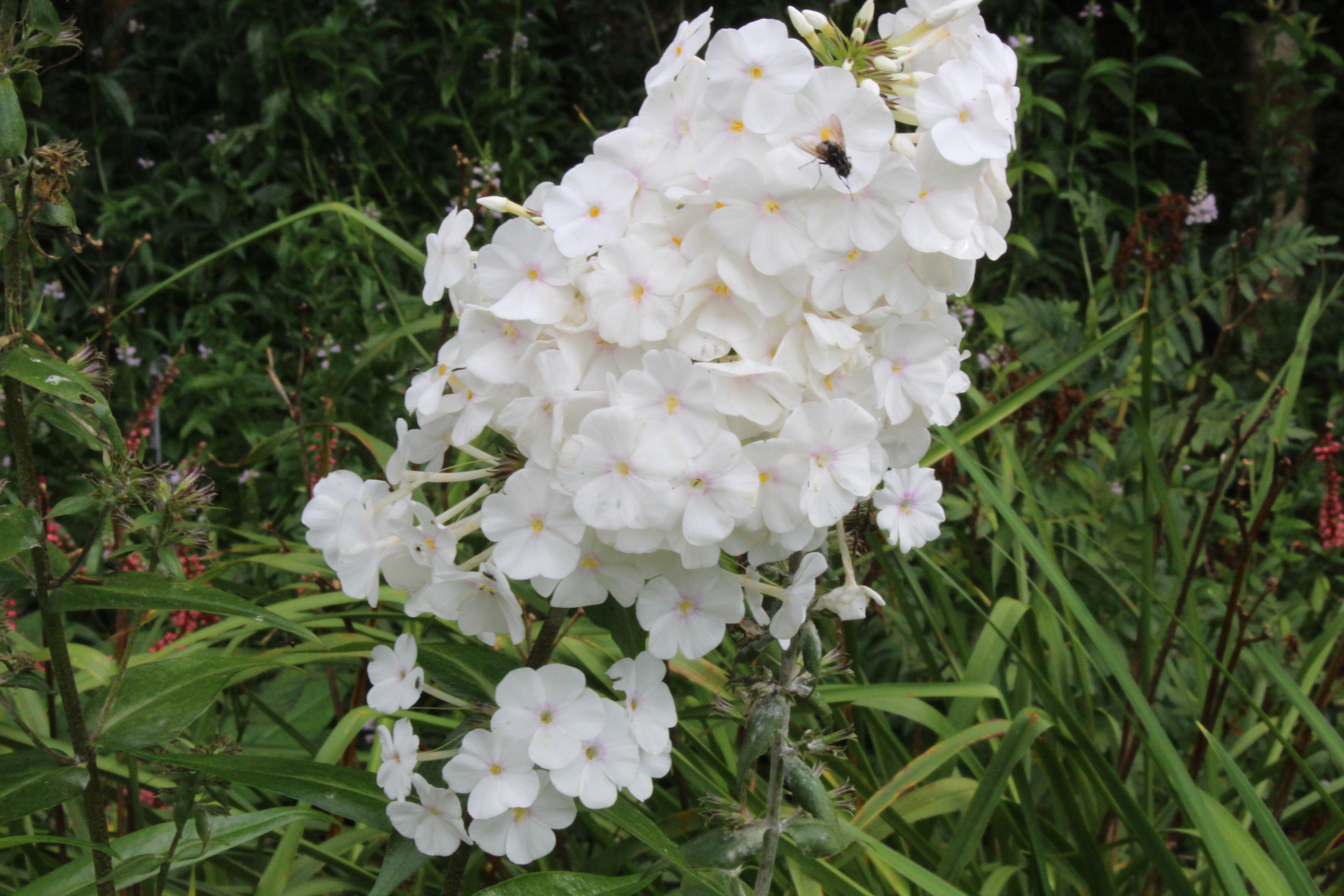Phlox maculata 'Delta'
Approx. 0.5 litre pot
About this cultivar:
Phlox maculata 'Delta' is a beautiful, tough, white Phlox with a red centre that eventually because flushed pink. It seems there is a paniculata type that also has a pink eye sold as 'Delta' - this is not it! This is a maculata (meaning spotted) type, which I prefer, because it has thinner - almost pencil thin - leaves and is much less likely to get mildew compared to other species!
- Position: Full sun, partial shade
- Soil: Almost any soil, grows well in Ballyrobert
- Flowers: July, August, September
- Other features: Bees and Butterflies
- Hardiness: Fully hardy, grows well in Ballyrobert, H6 - Hardy in all of UK and northern Europe (-20 to -15°C)
- Habit: Clump forming, Columnar or Upright
- Foliage: Deciduous
- Height: 60 - 90 cm (2 - 3 ft)
- Spread: 30 - 60 cm (1 - 2 ft)
- Time to full growth: 2 to 5 years
- Plant type: Herbaceous Perennial
- Colour: Green, white
- Goes well with: Many - but we love Roses, Grasses, and Astilbe
About this genus:
Phlox gets its name from the Greek for flame. It is a genus of 67 species of perennial and annual plants in the Jacob's Ladder family (Polemoniaceae). They are found mostly in North America (one in Siberia) in diverse habitats from alpine tundra to open woodland and prairie. Some flower in spring, others in summer and autumn. Flowers may be pale blue, violet, pink, bright red, or white. Many are fragrant. Some species such as P. paniculata (Garden Phlox) grow upright, while others such as P. subulata (Moss Phlox, Moss Pink, Mountain Phlox) grow short and matlike. A variable genus!
All the Phlox we have to sell, like all our plants, have been grown and trialed in our own garden. We've found them to be unfussy - full sun to part shade and almost any non-waterlogged soil should be fine.
Combinations are many - but we love Roses, Grasses, and Astilbe.


